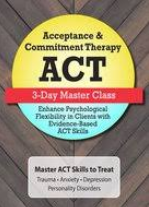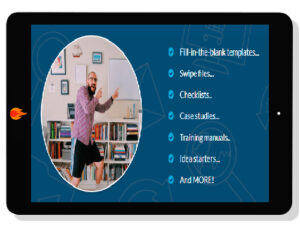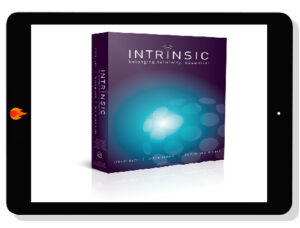(This course is available for immediate delivery)
Jennifer L. Patterson – Acceptance & Commitment Therapy (ACT) Master Class
Watch this breakthrough Acceptance and Commitment Therapy (ACT) master class to develop core competencies and transform your skills to achieve better therapeutic outcomes, even with your most challenging clients!
You’ll learn how ACT weaves mindfulness strategies with cognitive-behavioral change strategies to revolutionize some of the toughest clinical conditions.
This in-depth training includes step-by-step methods to:
set an ACT consistent treatment plan
build an ACT skills repertoire to use immediately with any client
apply evidence-based ACT practices in a fluid and ongoing manner
Clinicians, like you, are experiencing improved outcomes for a wide range of clinical conditions including anxiety, depression, trauma, PTSD, and personality disorders.
Full of thought provoking lecture, engaging case studies and guided instruction, you will learn essential ACT skills that your clinical practice is missing to help your clients move forward in living a meaningful life. Leave this master class armed with tools you can use in your very next session.
Revolutionize your client outcomes with the flexible and fluid ACT approach!
Develop a deep understanding of the theoretical and philosophical foundation of the ACT model to help clients increase psychological flexibility.
Expand knowledge base of ACT as a contextual behavioral science and how it differs from Cognitive Behavioral therapies.
Detect the six psychological inflexible processes which maintain psychological rigidity and understand how it pulls clients away from value based behaviors.
Formulate ACT consistent case conceptualizations to understand avoidance and how it relates to maintaining away moves related to value based behaviors.
Utilize ACT case conceptualizations to prepare evidence-based treatment plans to assist with a cohesive treatment approach.
Utilize the six psychological flexible processes in ACT to facilitate emotional openness and increase psychological flexibility in clients.
Analyze how ACT attempts to undermine problematic language obstacles and implement clinical skills to assist clients with getting unhooked from their thoughts.
Use metaphors, analogies, and experiential exercises to improve clients understanding of self and increase value-based behaviors.
Implement ACT evidence-based protocols and processes into treatment for specific disorders including depression, anxiety, trauma and the personality disorders.
Synthesize core ACT interventions, like defusion, mindfulness, acceptance and the observer self, to increase clients value-based behaviors.
Utilize ACT interventions, like contacting the present moment, to assist with developing observation and awareness skills for your client.
Explore and integrate the role of self-compassion in the ACT model and utilize exercises to help clients build self-acceptance.
Establish an effective and valued therapeutic relationship through the use of compassion-focused therapy processes.
Develop an understanding of the ACT extension models and integrate core ACT techniques to use with trauma, adolescents, groups and couples.
Incorporate awareness training from the Crosshairs model to help clients with trauma to effectively identify painful thoughts and feelings and determine behaviors as being helpful or unhelpful in an effort to increase valued living.
Implement the core skills from the DNA-V youth model, like mindfulness and action, to support personal growth and improve psychological problems in adolescent clients.
Demonstrate how to implement the choice point skills useful for in-the-moment integration of CBT and ACT to assist clients to respond flexibly to the situations that occur outside of sessions.
Integrate core self-compassion techniques and awareness training to assist your clients with effective interpersonal functioning and increasing satisfaction in interpersonal relationships.
Would you like to receive Jennifer L. Patterson – Acceptance & Commitment Therapy (ACT) Master Class ?
Master the Core Skills and Competencies of ACT
The ACT Model
What is Acceptance and Commitment Therapy
Evolution of Third Wave Behavioral Therapies
Outcome Studies
Foundations of ACT
Contextual Behavioral Sciences
Functional Contextualism
Relational Frame Theory
Happiness Trap
Importance of Understanding for Clinical Practice
Case Conceptualization
Experiential Avoidance as the Core Problem
Creative Hopelessness Exercises
Assessment Measures
ACT Clinical Interview
Inflexahex Diagnostic Model
Diagnostic Model: Six Core Processes of Psychological Inflexibility
Experiential Avoidance
Lack of awareness
Unclear Values
Unhelpful Behaviors
Attachment to Conceptualized Self
Cognitive Fusion
Treatment Model: Six Core Processes of Psychological Flexibility
Acceptance
Mindful Decision Making
Values Clarification
Value-Based Behaviors
Understanding Sense of Self
Defusion
Interventions and Strategies
Evidence-Based Processes and Practices
Mindfulness Action Plan
Commitment Plan Worksheet
Integration of Evidence-Based Models CBT, DBT, CFT
Role Play
Videos
Case Presentations
ACT Treatment Planning
Suggestaflex Model
Metaphors
Paradoxical Processes
Mindfulness Techniques
Self-Compassion Exercises
And Much More!
ACT in Action
Trauma
Function of Trauma Symptoms
Specify Treatment Goals
Target Self-harm Behaviors
Increase Psychological Safety
Mindfulness Exercises
Anxiety
12 Week Protocol
Control as the Problem
Mindful Worry Sheet
FEAR Algorithm
FEEL Exposure Work
Personality Disorders
Increase Emotional Tolerance
Values Clarification
Mind vs. Experience
Target the Client’s Story
Work with Client Anger
Role of Therapist Self-disclosure
Depression
12 Week Protocol
Reason Giving
Rumination
Story Telling
Damaged Conceptualized Self
Behavioral Activation
ACT Extension Models
Groups & Individuals: The ACT Matrix
Simple Format for Groups and Individuals
Five-sense Experiences
Mental Experiences
Toward Moves
Away Moves
The Four Quadrants
Trauma Prevention & Treatment: The Crosshairs Diagram
Awareness Training
Identify Painful Thoughts and Feelings
Identify Situations as Being Helpful or Unhelpful
Living Your Values at Work, Home, or in Other Important Areas of Life
Adolescents: The DNA-V Model
For Adolescents, Parents, Teachers
Based on Growth and Development
Understand the 3 Processes and 2 Perspectives of Model
Assist Adolescent with Handling Difficult Thoughts, Feelings, and Situation
Discover Role
Noticer Role
Advisor Role
Outside of Client Session: The Choice Point Model
Useful for in-the-moment Integration of CBT and ACT
Target Situation Selection and Modification
Values and Skills Section
Modify the Form or Frequency of Inner Experience
Respond Flexibly to the Situation and the Inner Experience
Help the Client Identify and Use Strengths
Couples: The ID Model
Assists with Conceptualization and Treatment of Interpersonal Relationship Issues
Self-dislike
Lack of Insight
Emotional Avoidance or Attachment to Emotional Experience
Self-compassion
Self-awareness
Self-acceptance
Please Note: PESI is not affiliated or associated with Marsha M. Linehan, PhD, ABPP, or her organizations.







